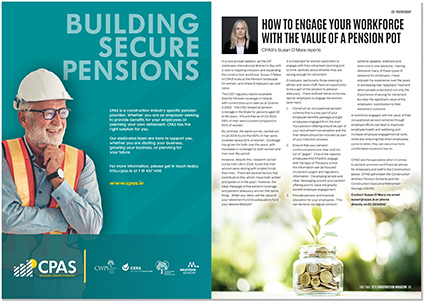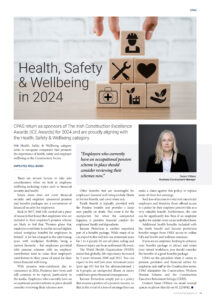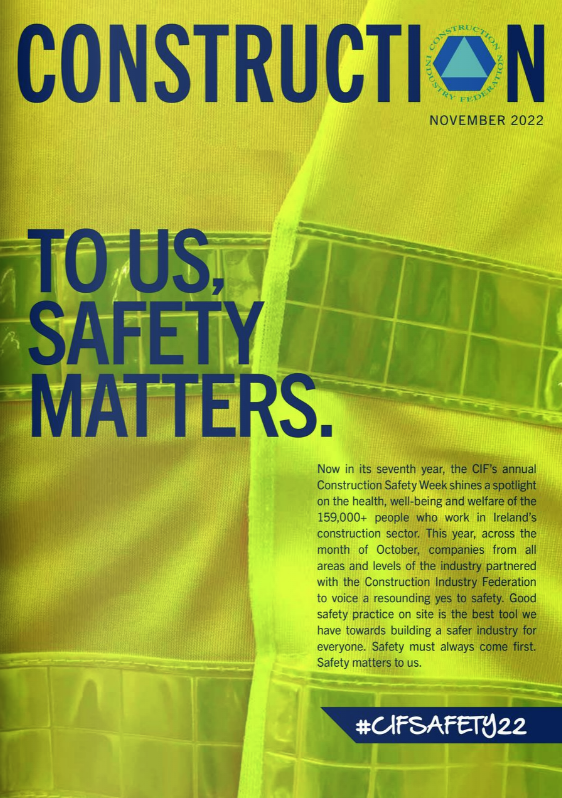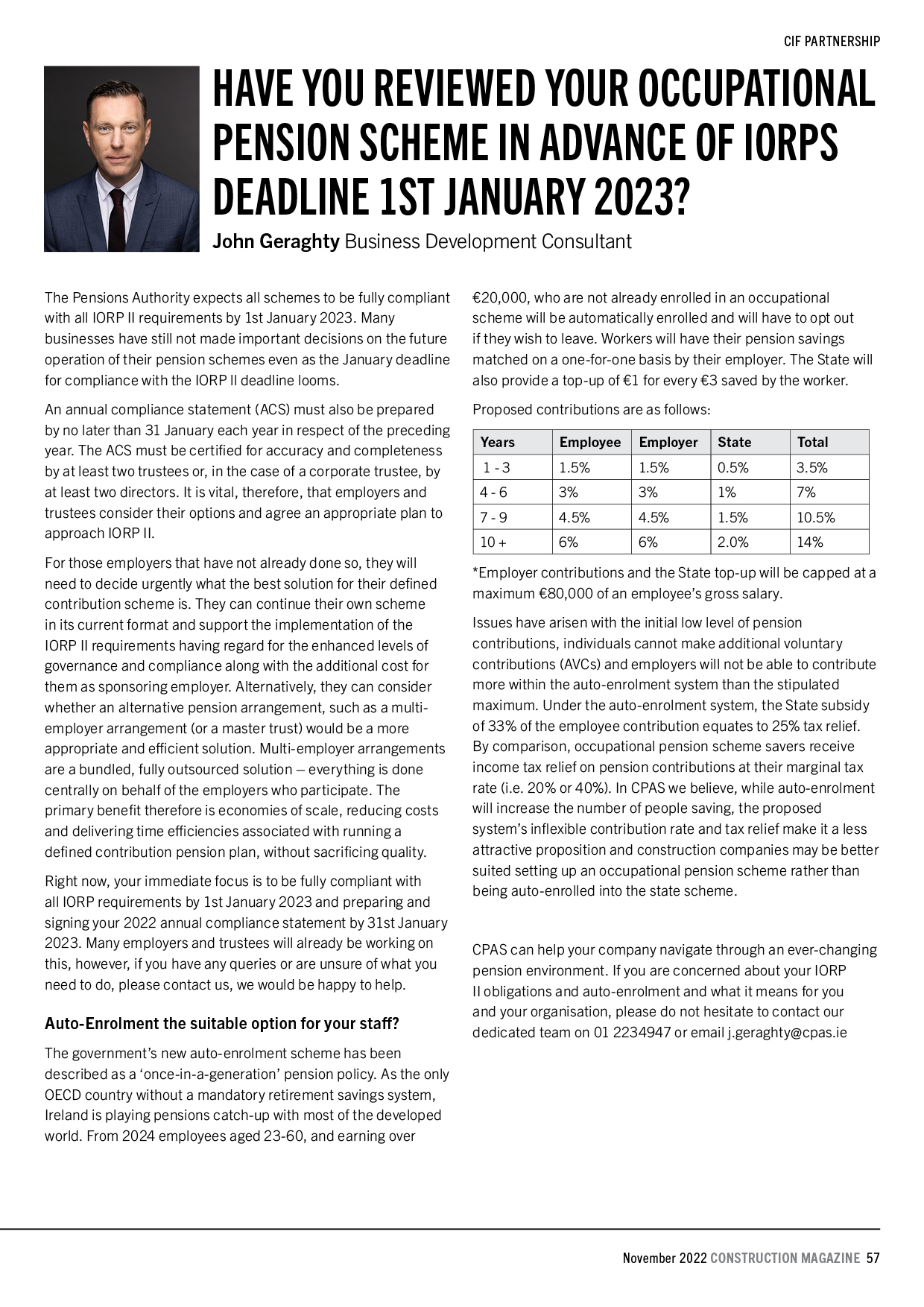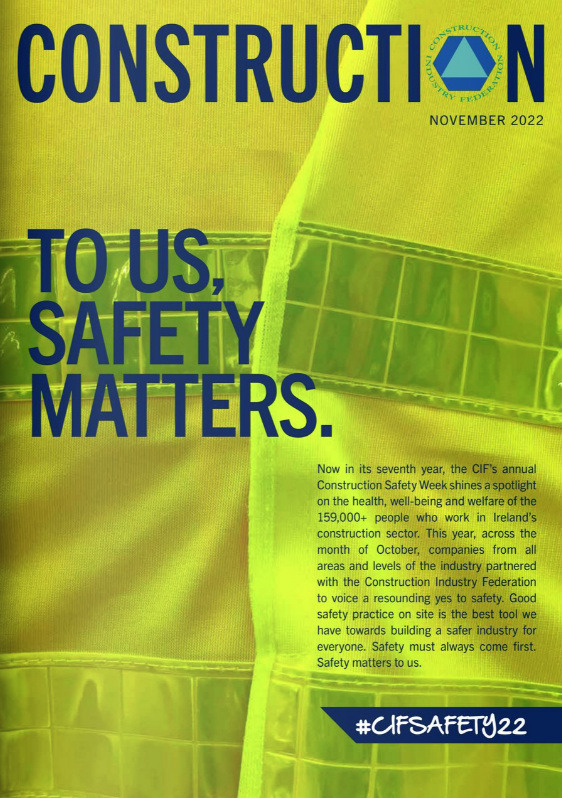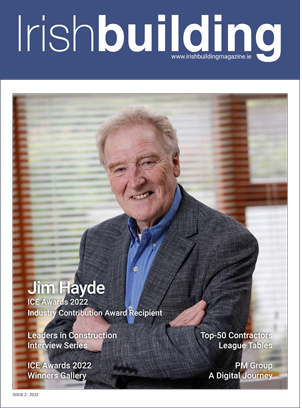The Irish government’s pension auto-enrolment scheme due to commence in January 2025. In the latest Irish Construction News magazine, SUSAN O’MARA, Business Development Manager, CPAS (CIF Pension Administration Services), emphasises the importance of employers keeping themselves informed about the latest regulations and requirements relating to pensions.
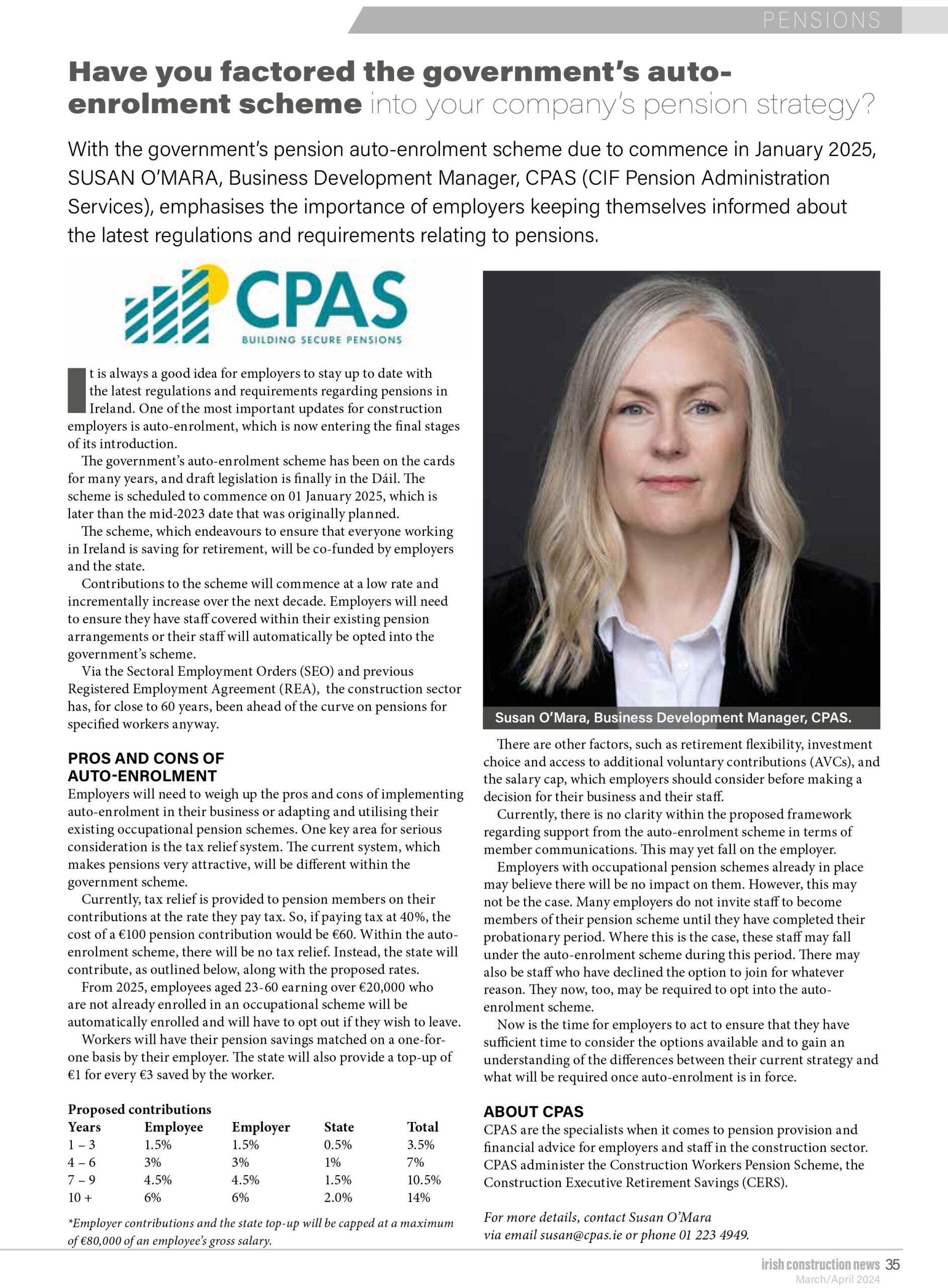
It is always a good idea for employers to stay up to date with the latest regulations and requirements regarding pensions in Ireland. One of the most important updates for construction employers is auto-enrolment, which is now entering the final stages of its introduction.
The government’s auto-enrolment scheme has been on the cards for many years, and draft legislation is finally in the Dáil. The scheme is scheduled to commence on 01 January 2025, which is later than the mid-2023 date that was originally planned. The scheme, which endeavours to ensure that everyone working in Ireland is saving for retirement, will be co-funded by employers and the state.
Contributions to the scheme will commence at a low rate and incrementally increase over the next decade. Employers will need to ensure they have staff covered within their existing pension arrangements or their staff will automatically be opted into the government’s scheme.
Via the Sectoral Employment Orders (SEO) and previous Registered Employment Agreement (REA), the construction sector has, for close to 60 years, been ahead of the curve on pensions for specified workers anyway.
PROS AND CONS OF AUTO-ENROLMENT
Employers will need to weigh up the pros and cons of implementing auto-enrolment in their business or adapting and utilising their existing occupational pension schemes. One key area for serious consideration is the tax relief system. The current system, which makes pensions very attractive, will be different within the government scheme.
Currently, tax relief is provided to pension members on their contributions at the rate they pay tax. So, if paying tax at 40%, the cost of a €100 pension contribution would be €60. Within the auto-enrolment scheme, there will be no tax relief. Instead, the state will contribute, as outlined below, along with the proposed rates.
From 2025, employees aged 23-60 earning over €20,000 who are not already enrolled in an occupational scheme will be automatically enrolled and will have to opt out if they wish to leave. Workers will have their pension savings matched on a one-for-one basis by their employer. The state will also provide a top-up of €1 for every €3 saved by the worker.
| Years | Employee | Employer | State | Total |
|---|---|---|---|---|
| 1 – 3 | 1.5% | 1.5% | 0.5% | 3.5% |
| 4 – 6 | 3% | 3% | 1% | 7% |
| 7 – 9 | 4.5% | 4.5% | 1.5% | 10.5% |
| 10+ | 6% | 6% | 2.0% | 14% |
*Employer contributions and the state top-up will be capped at a maximum of €80,000 of an employee’s gross salary.
There are other factors, such as retirement flexibility, investment choice and access to additional voluntary contributions (AVCs), and the salary cap, which employers should consider before making a decision for their business and their staff.
Currently, there is no clarity within the proposed framework regarding support from the auto-enrolment scheme in terms of member communications. This may yet fall on the employer. Employers with occupational pension schemes already in place may believe there will be no impact on them. However, this may not be the case. Many employers do not invite staff to become members of their pension scheme until they have completed their probationary period. Where this is the case, these staff may fall under the auto-enrolment scheme during this period. There may also be staff who have declined the option to join for whatever reason. They now, too, may be required to opt into the auto-enrolment scheme.
Now is the time for employers to act to ensure that they have sufficient time to consider the options available and to gain an understanding of the differences between their current strategy and what will be required once auto-enrolment is in force.
ABOUT CPAS
CPAS are the specialists when it comes to pension provision and financial advice for employers and staff in the construction sector. CPAS administer the Construction Workers Pension Scheme, the Construction Executive Retirement Savings (CERS).
For more details, contact Susan O’Mara via email (susan@cpas.ie) or phone 01 223 4949.


